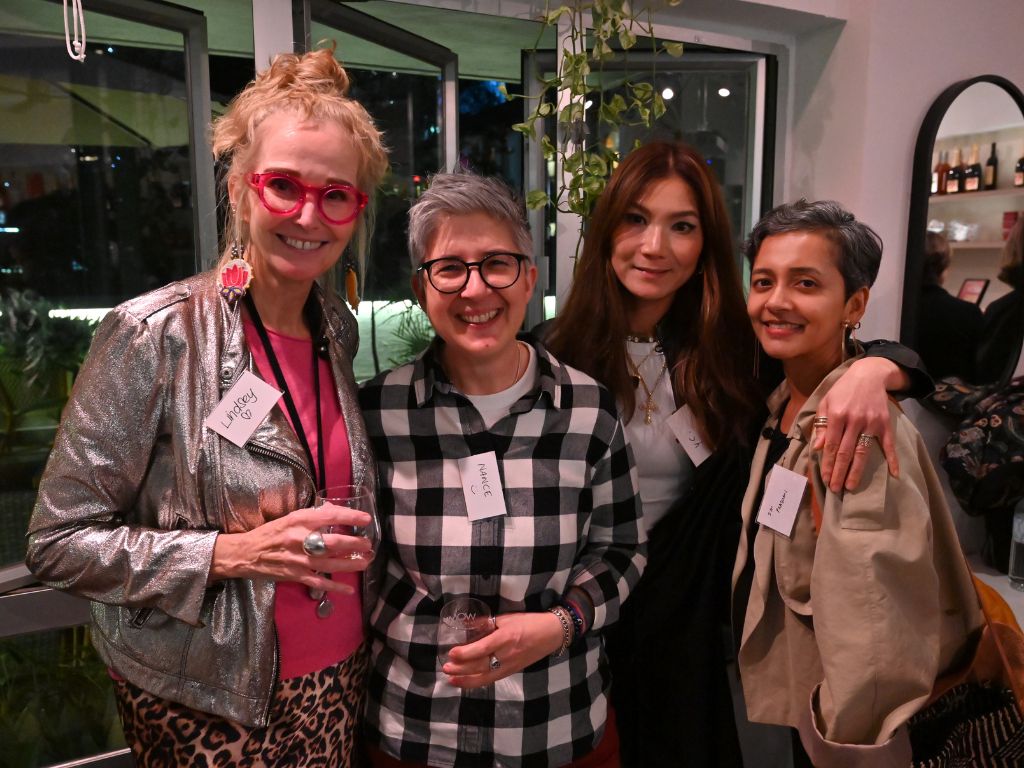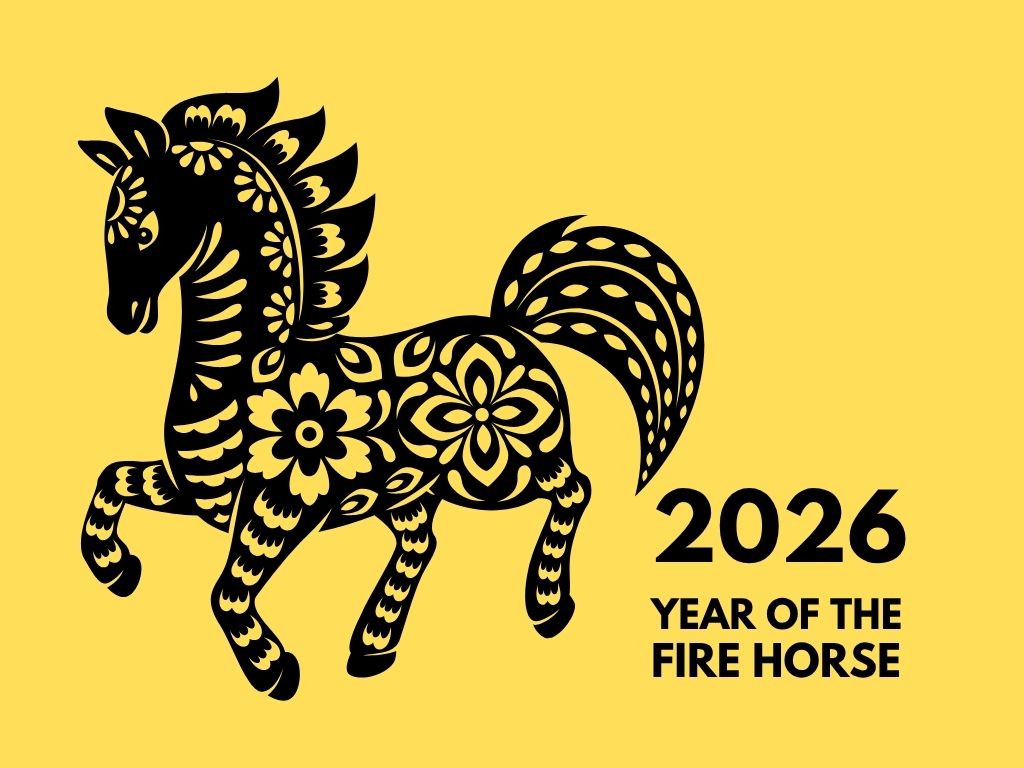Ancient Wisdom Made Modern
Being Neighbourly x Tang Shu Wing, Tang Shu Wing Theatre
- Author/ BEING NEIGHBOURLY
Share
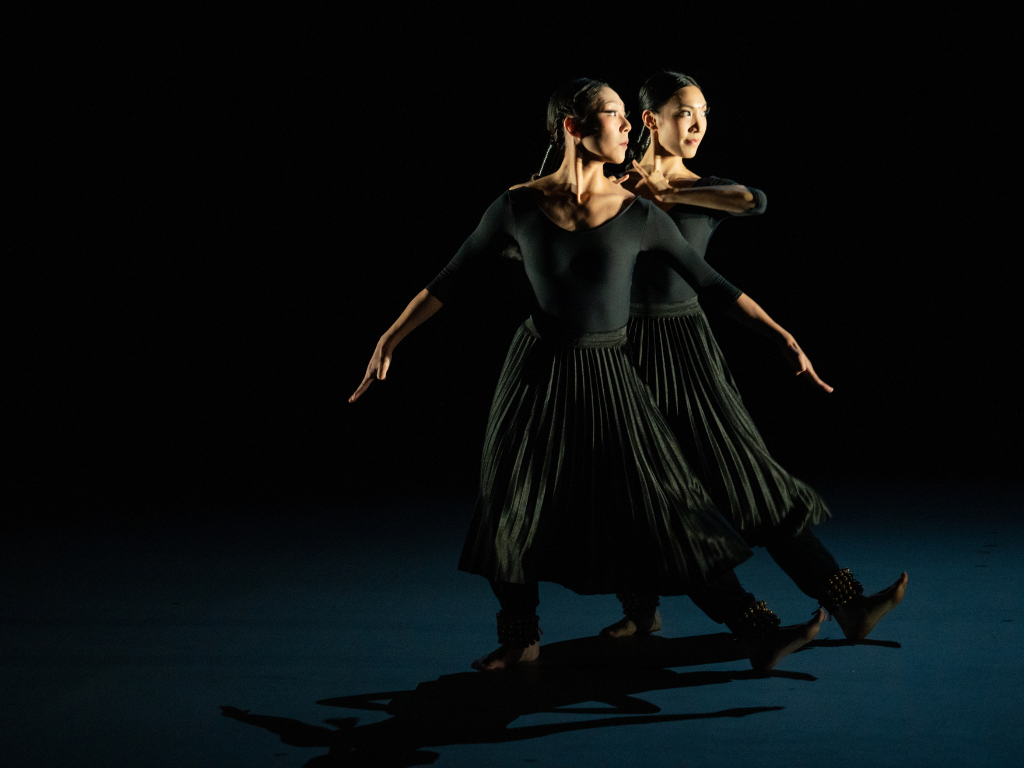
It was in 2019 when Theatre Director, Tang Shu Wing was hiking to the Base Camp of the Himalayas, that he suddenly felt a call to do something on the Mahabharata. The ancient Sanskrit text, of which the Bhagavad Gita is but a small part, contains numerous references to attaining spiritual enlightenment in the very mountains that Tang was trekking.
The burning question that then arose for Tang, was how on earth he would market The Bhagavad Gita, when almost 90% of Hong Kong’s population has never heard of the book.
“I chose to promote it as a show relating to yogi wisdom because many people have heard of yoga, even if they don’t practice,” Tang shares, sagely.
To those who know Tang, the decision to stage the play, and in the mashed up realistic-abstract manner he has, was not surprising. Tang has a long held interest in physical expression: “Tai Chi, mime and traditional Chinese theatre”, he reels off, and first “met” yoga in 1998, in New York. Twenty-one years ago, when he undertook a yoga teacher training course at the International Sivananda Yoga and Vedanta Centres in Kerala, India, he came across the Bhagavad Gita more intensively. Before this, Tang had known superficially of the Bhagavad Gita —thanks to Peter Brook’s theatrical adaptation of it in 1984.
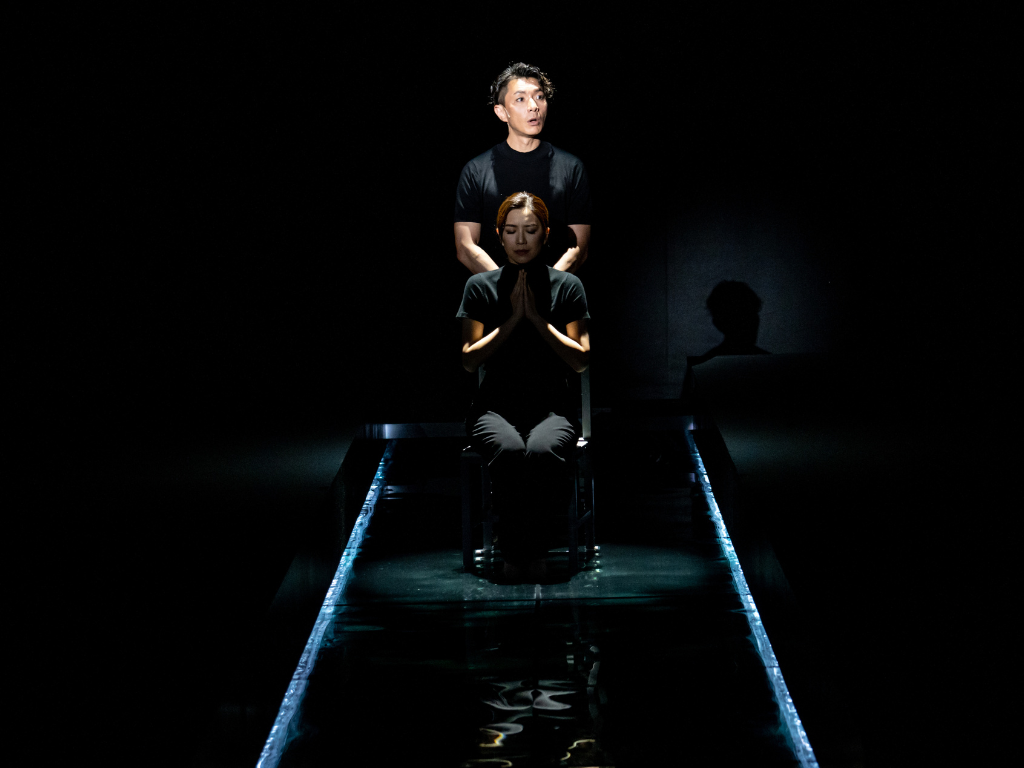
“Whether the Bhagavad Gita is a religious book is subject to a reader’s standpoint,” says Tang, adding that those who hold this to be so, claim it to be about divine creation and faith, while those who say otherwise, consider it to be a book that can help you acquire a sense of life that is meaningful. “Personally, I do not think it is a religious book, in the sense of the Bible or Quran,” Tang says, adding that his upcoming projects for 2027, include tackling the Diamond Sutra of Gautama the Buddha, beloved of Buddhists everywhere.
Whatever one’s view, Tang says the Bhagavad Gita is still very valid, and, in his current stage of life and work, reflects his main concern about the place of spirituality is today’s world.
Previously staged in Hong Kong in 2023 but brought back as part of the 30th anniversary of HK Arts Development Council, Tang says that the wisdom of the Bhagavad Gita lies in its proposal of four paths of yoga to live a good life: Of them, he says that ‘Karma yoga’ is the mission of all voluntary organisations/social aid agencies today. “Without these organisations, the world will become more miserable.” It is about not caring about personal results/rewards when you do something; ‘Raja yoga’ is about controlling your mind through control of your body. Asanas (postures), Pranayama (breathing), meditation, proper diet, and relaxation, “produce health benefits, which we dearly need today”; ‘Bhakti yoga’,is about devotion and channelling your emotions/internal conflicts to an external object, so you have an outlet for your negative emotions in a positive sense; and ‘Jnana yoga’, uses your mind/intellect to acquire knowledge to better control your mind. Jnana involves the study of scriptures, reflecting ideas from other people. “We need more thoughts on certain existential questions to better navigate where we are and what we are doing.”
“The struggle for power, domination and attachment to the material world are aggravating our already fragile situation. Spirituality can give us some respite. However, we must also live in the material world. To what extent spirituality can negotiate space within these confines, is really the question,” observes Tang, insightfully.
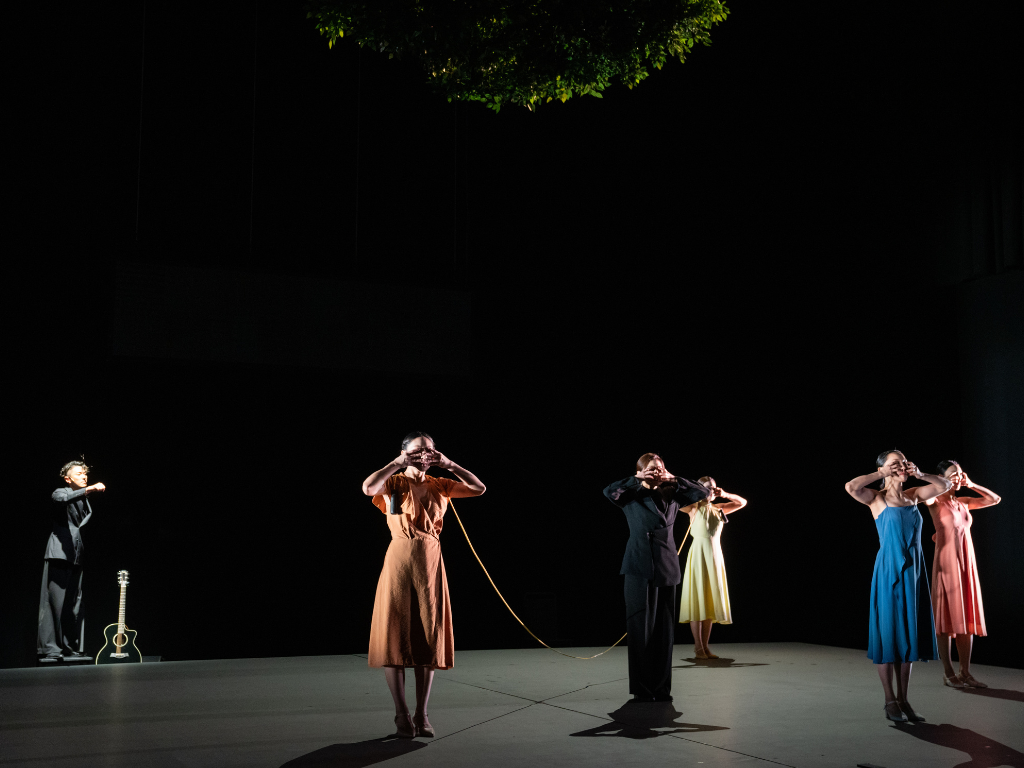
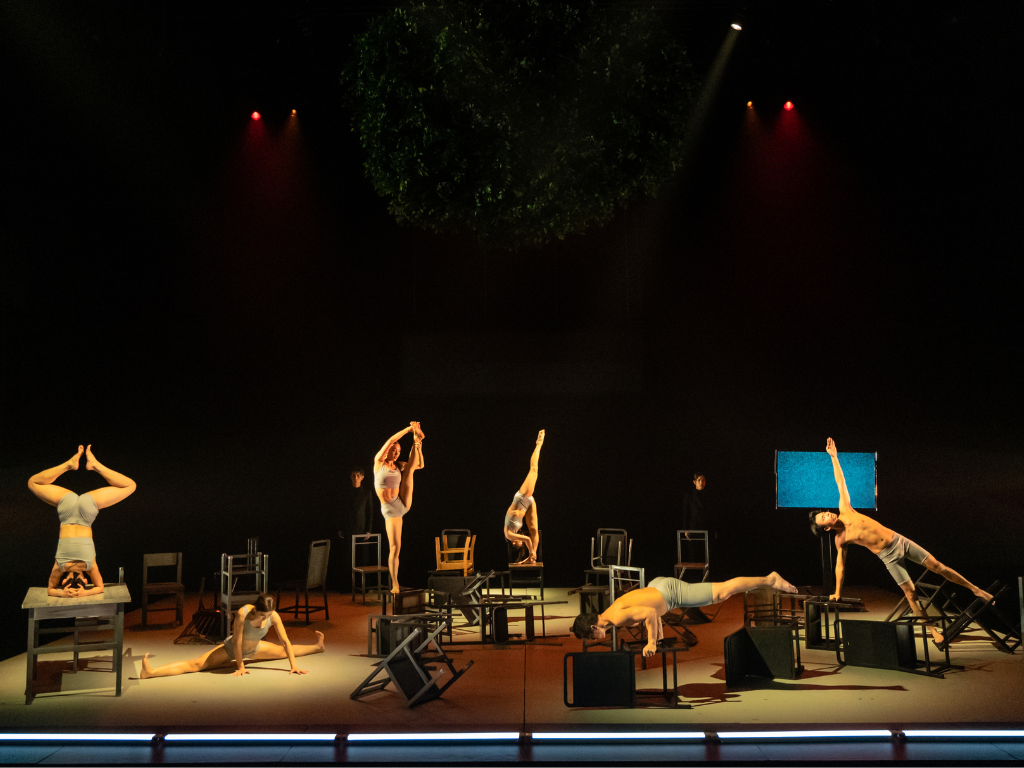
Those who expect a performance more culturally Indian, will be surprised to find it is not. With the exception of the casting of an actress of Indian origin in the English version, and the Bharatanatyam sequence, which is choreographed by an Indian dancer and teacher, Tang shares that it was his specific aim to make the performance non-Indian to appeal to more people, and to align with his overarching belief, played out elsewhere across his body of work, that every great work of humanity bypasses cultural boundaries.
“Take the case of Hamlet, it goes beyond being about, ‘an English play set in Denmark,’ but is about the birth of a modern man Hamlet, who is fragmented in his value systems, an atheist, forever calculating pros and cons, like we do today,” says Tang. “In every culture, you have similar ideas and concepts like Brahman, Atman, Prakriti —different names, but all pointing to the same duality of the material world and what lies beyond it.”
“I always like to mix the realistic and abstract and decided to create a performance which reflects our contemporary world, rather than a literal illustration of the book. The main challenge was how to construct a show which embodies these abstract ideas but doesn’t fall into indoctrination, he shares. “On top of some universal existential themes like power struggle and bestiality, the main phenomenon of today is technologically driven: mobile phone addictions and AI fanaticism,” says Tang. “I transform the two protagonists in the Bhagavad Gita into two narrators who travel in and out of the story of Mahabharata. Finally, through improvisation with the performers, I succeeded in creating the various scenes in the show.”
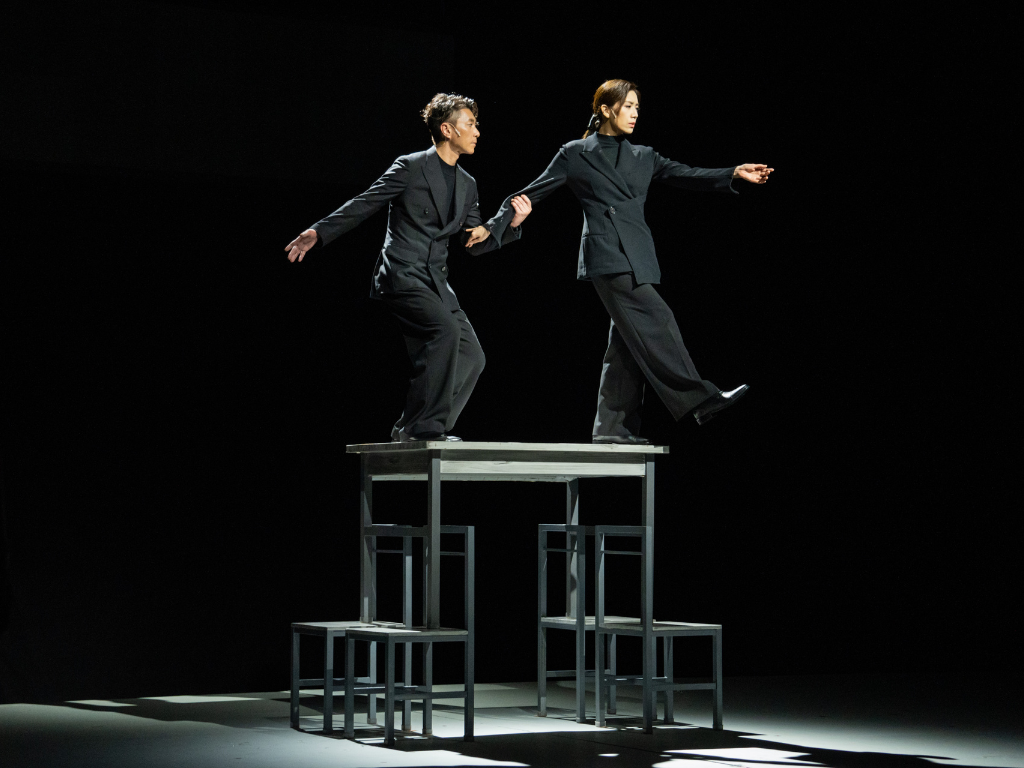
“Music and dance are always part of my favourite theatrical expression, as they address our visual and aural senses rather than our intellect. In the Bhagavad Gita, I add a very specific element: silence, which is a very important part of the work, because it gives the audience space for immediate associations and for their imagination.
“In this regard, I want to stress the specific nature of theatre: a live performance exposing a totality of scenic elements like body, sound, light, architecture and literature. It is up to the audience to choose what to watch and listen to.
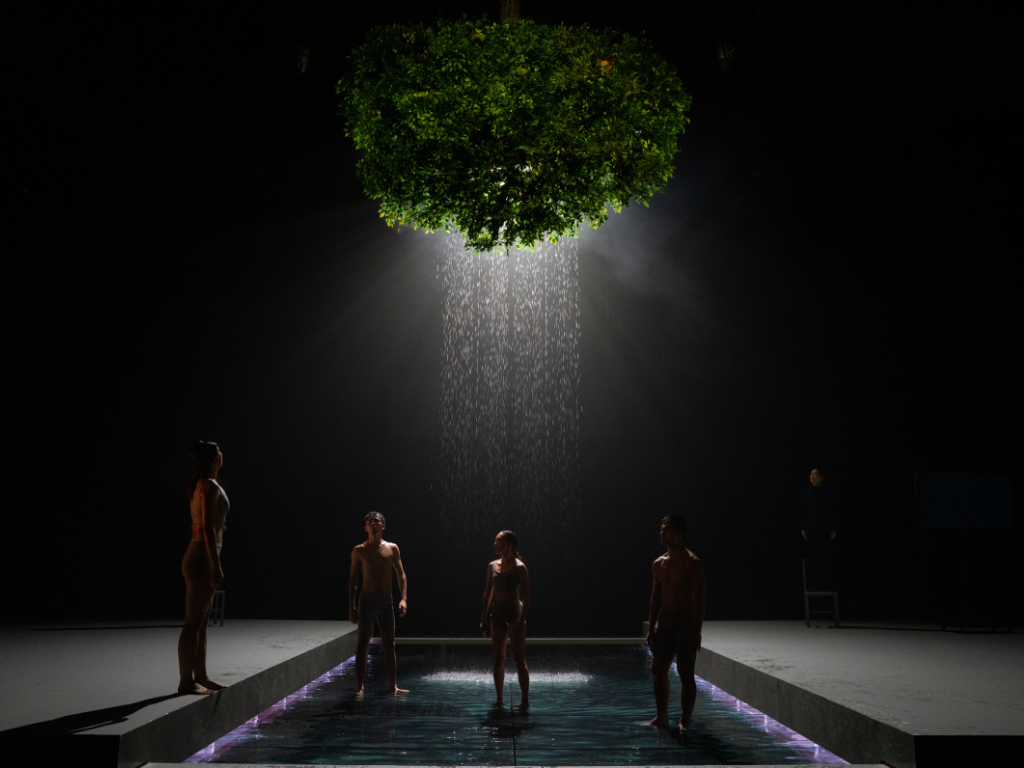
The Bhagavad Gita will run in Cantonese on 20-22, 24-27, 29 June 2025 and in English on 28 June 2025. Tickets can be purchased here.
Share
About the Author

Being Neighbourly
For over 20 years, the people behind BN have been creating content on the best things in life: food, travel and inspirational people.
New Stories
Stay Up To Date
Want the latest insights and fresh content delivered straight to your inbox? Subscribe to our newsletter and stay updated with our exclusive content!



